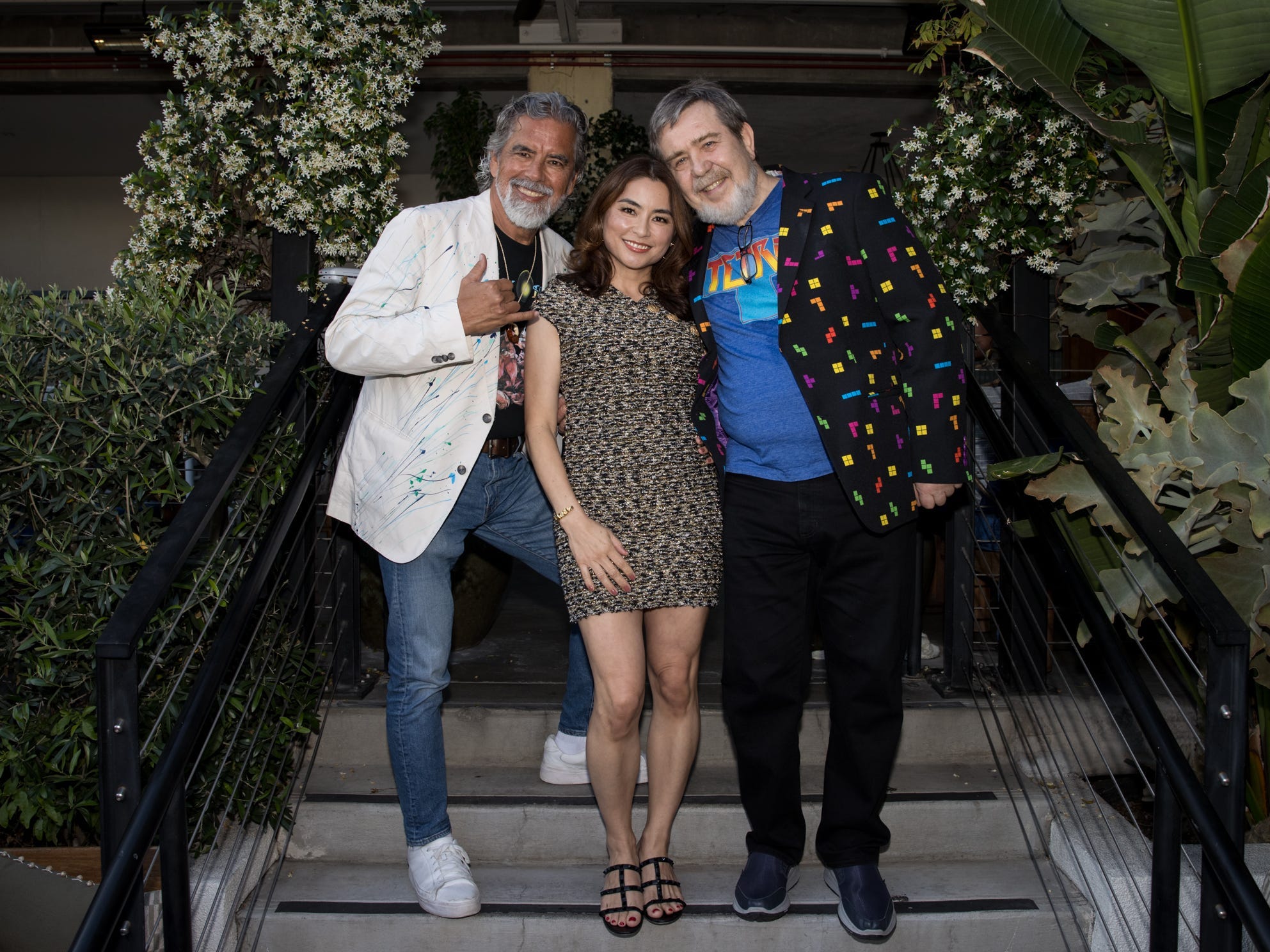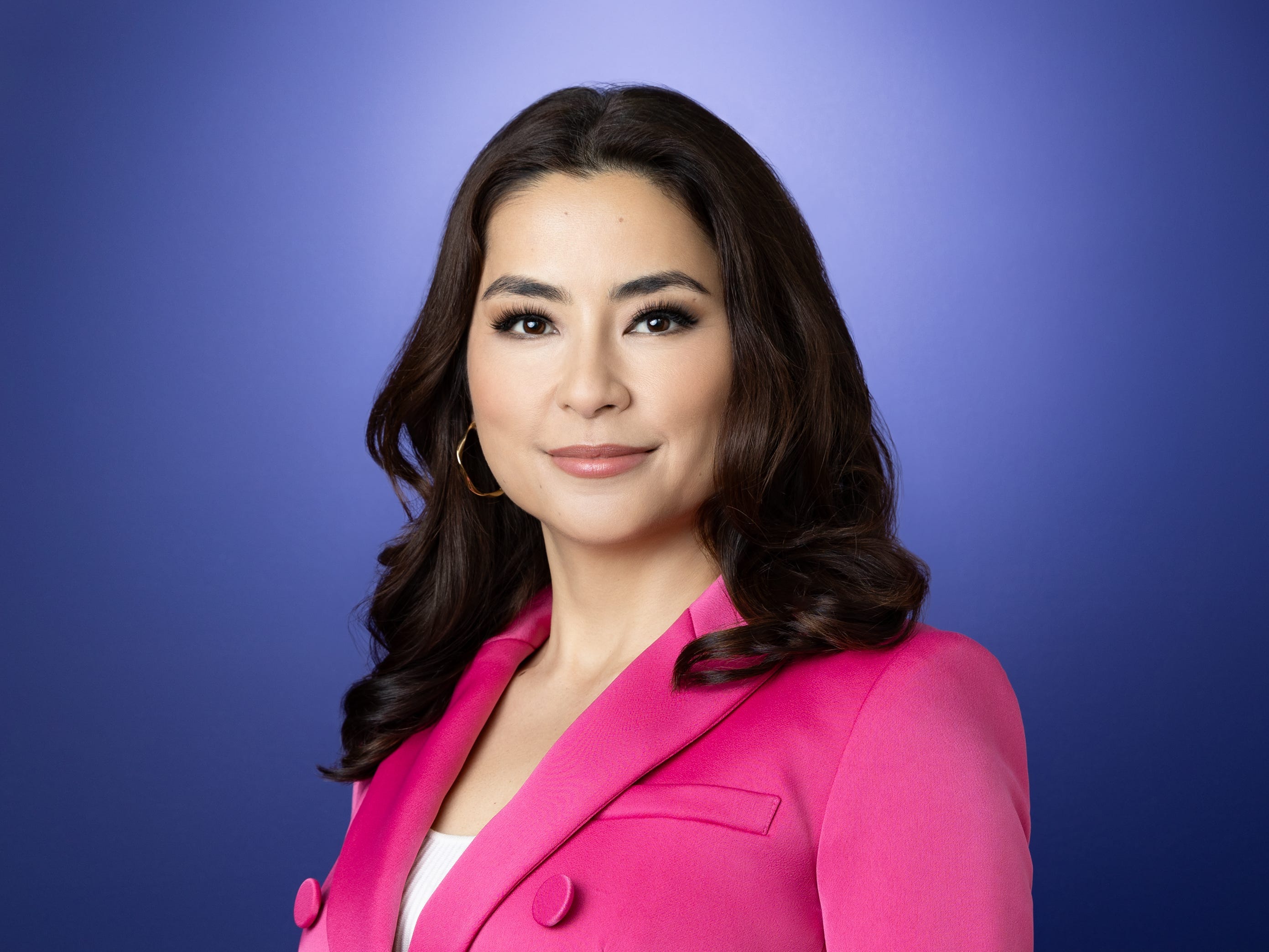
Photo credit: Ryan Hadji
This as-told-to essay is based on a conversation with Maya Rogers, CEO of Tetris. It has been edited for length and clarity.
When people learn that I’m the CEO of Tetris, they often say something like, “Oh, I used to play that game.” It’s true that Tetris has been around for 42 years, but it’s still relevant — not only for my family, but for the world.
My dad, Henk Rogers, secured the rights for Tetris back in the 1980s. We were living in Japan at the time, on the second floor of my maternal grandparents’ house. After my dad invented one of Japan’s first role-playing video games, we were able to move to an apartment down the road. My parents were often in the office — I remember coming home from second grade and babysitting my infant brother so my mom could go to work.
After my parents brought Tetris to the world, they had more money, which allowed our family to move to Hawaii when I was 11. My parents had met in Hawaii during college and always dreamed of their three kids receiving an American education there.
My parents never emphasized wealth
Despite the global prevalence of Tetris, we were never superrich. My parents still struggled a lot. I was never brought up to equate success with wealth. My parents taught me that wealth is within — it’s about how you live your life. I try to instill that in my own kids, who are 4 and 6.
Even today, the company isn’t about money for me. It’s about the way that Tetris can bring people together around the world. It’s a game that’s easy to play, but hard to master. That has universal appeal.
My dad’s health scare led me to take over
Growing up, I never had concrete plans to join the family business. With a stereotypical Asian mother, I felt pressure to work for high-profile companies, and worked for Honda and Sony.
Then, about 15 years ago, my dad had a heart attack and nearly died. I was in my mid-30s and living in Los Angeles, but I realized I wanted to learn from my dad before it was too late. I asked him if I could move back home to Hawaii and join the business.
Working with my father was unique. I stopped calling him Dad when we worked together, because he was just Henk in the business setting. Today, he’s been retired for 14 years, but I still don’t call him Dad.
Henk and I never had a big conversation about me taking over the business. We’ve always been good at communicating without too many words. One day, I said to him, “I think I can do this.” That was the extent of the conversation. A year later, he retired.

Photo credit: Tracy Wright Corvo
Being a third-culture kid helped me as a CEO
My family is very multicultural. Henk is Dutch-Indonesian and my mom is Japanese. In elementary school, I was the only child who was mixed race, and the only one without a Japanese name.
Henk’s background helped him run the business and work closely with Alexey Pajitnov, the Russian developer who invented the game. Pajitnov developed Tetris in the Soviet Union, and the government initially held the rights to the game. Henk travelled to the Soviet Union to obtain the rights to distribute the game, and later, in 1996, he and Alexey started The Tetris Company, which I now run.
My global roots are still an asset to me as a CEO. Traveling and talking to people is one of my favorite parts of the job. The more I talk to people, the more I realize that we’re all the same, despite different cultural backgrounds. Having a diverse family and running a global company has shown me that we’re all human.
My company and family have very strong ties to Hawaii
Tetris is still based in Hawaii. That’s not convenient — all of our partner companies are outside the state. Yet it’s where we want to be. I’m a perfect example of the Hawaiian concept of kamaʻāina: a sense of being tied to the land. I left my island, and then I came home.
I want other young Hawaiian entrepreneurs to have that same opportunity. In 2012, I founded Blue Startups, a partnership between Tetris, the state, and other investors. The incubator supports entrepreneurs on the islands. My hope is that it will impact Hawaiian children and our state’s future.
My own children see me as a strong female leader. My daughter tells everyone her mom runs Tetris, and she has aspirations of being a professional Tetris player (as well as a rockstar). I was lucky to see my parents build something great. Watching that impacted what I did with my life. I hope to expose my kids to as much as possible, so they can be who they truly are.
The post I took over the Tetris company from my dad. My children see me as a strong leader. appeared first on Business Insider.




